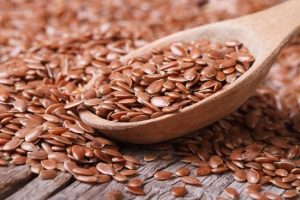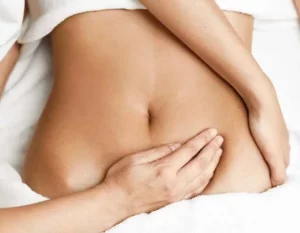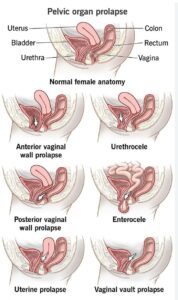Constipation
Constipation is a very common issue for women of all age.
However, most of women are not aware they are and probably not suspect the risks associate to constipation.
Risks of constipation are not just being blotted or suffering from abdominal pain. It also leads to hemorrhoids, rectocele and anal leakage (gas or stools).
It can even impact our general health condition: You could feel tired, have migraines, lower back pain, pelvic pain, swollen legs….
So constipation is not just a minor inconvenient, it is a real issue that needs to be tackle.
What is it ?
To start let’s clarify what it is. We talk about constipation when you do not have a bowel movement every day or if your stools are dry, dehydrated, hard or small.
We also talk about constipation if you need to strain to evacuate or if you don’t evacuate completely when straining.
At this point, most of my patients understand, they have been constipated for so long without even realizing it.
What are the causes ?
One of the main causes is, since you were a little girl, you don’t want to poo in a public place or if someone is around.
Secondly, being a mum, a busy woman or both, often imply to always be in a rush leading to stress and to forget to drink enough water.
Finally, we have bad eating habits (we eat fast and a lot of gluten) which cause gut dysfunction.
So what can you we do about constipation?
YOUR DIET:
1) Boost soluble fiber! You need to increase the softness of your stools; soluble fibers are the ones for you!
A list of soluble fiber you can eat:
– Psyllium
– Oat, Barley, brown rice
– Fruits
– Vegetables without peels
– Dried vegetables: chick peas, lentils, beans
– Flaxseed

But careful! If you have a final constipation, meaning you really have difficulty to exonerate and it is really painful, don’t eat too much fiber as it will increase the consistence of your stools and make the problem worse.
2) Avoid constipating foods, which are white rice, banana, carots, chocolat.
My tips if you really like rice: wash it before to cook it.
For banana: eat ripe banana.
3) Prefer laxative foods like prunes, spinach, orange juice, rhubarb, fig, pear, olive oil.
DRINK MORE WATER:
Always start your meal with a glass of water, but don’t finish this one with some water.
Generally (if you are not breastfeeding or in holidays in a hot country), drink 1,5l a day.
Hepar is the best water ever!
Food and hydration are essential but the most important is:
LEARN HOW TO HAVE A GOOD BOWEL MOVEMENT
The one thing to remember is DO NOT STRAIN!!!!!
In our busy lifestyle, we don’t go to the loo when we first need to. It is a huge mistake!
Because the need disappear but our stools are still in the rectum and become dehydrated.
Dehydrated stools are really difficult to exonerate.
If you are very busy, as we all are, try to have regular bowel habits. Try to have a bowel movement at the same time of the day, in the morning after your breakfast for example. Following a meal is often the best as we have a gut reflex helping transit.
Let’s see the main issue with constipation in occidental world: how to have a bowel movement?!?
Have you seen Indian people having a bowel movement?
Yes, they squat and they are not constipated (I swear, I have been in India. Nobody understood why I was constipated, eating my prunes!)

In our occidental loo, we can’t squat.
However, to compensate the lack of squat, we can put a step under our feet and bend trunk forward (without rounding the spine).
If we strain in apnea after breathing in, it will lead to prolapse and hemorrhoids.
So, to initiate, blow in a straw (to gently squeeze your transverse abdomens)
SPECIAL TIPS:
I know, everybody told it to you but here are my tips about meal:
- Take your time to eat,
- Chew very slowly,
- Eat at the same time every day and in a quiet room,
- Do ¾ meals per day, not more
- Start your meal with a fat aliment (salad with seasoning, avocado…)
And my special tips about food are: Put 3 prunes in a glass of water in the evening and fasted in the morning, drink water and eat prunes.
Don’t forget to take probiotic (like lactibiane) to help your gut flora.



